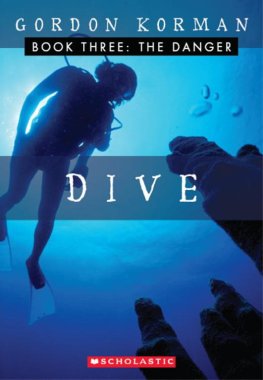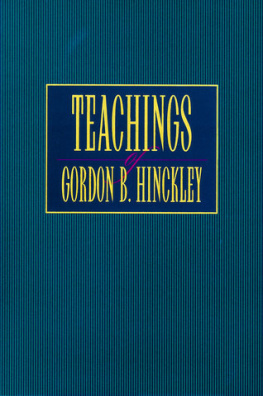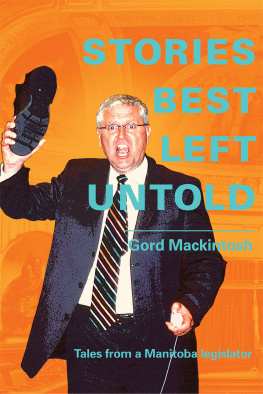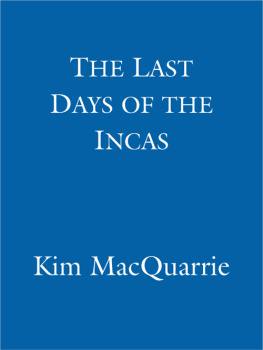




1998 Ellen Gibson-Wilson
All rights reserved. No part of this book may be reproduced or transmitted in any form by any means, electronic or mechanical, including photocopying, recording, or by any information storage and retrieval system, without permission in writing from the Publisher.
Published by Willow Creek Press
P.O. Box 147
Minocqua, Wisconsin 54548
Designed by Patricia Bickner Linder
For information on other Willow Creek titles, call 1-800-850-9453
Library of Congress Cataloging-in-Publication Data
MacQuarrie, Gordon, 1900-1956.
The Gordon MacQuarrie sporting treasury : stories by Gordon MacQuarrie ; compiled and edited by Zack Taylor.
p. cm.
ISBN 978-1-62343-593-6
1. Hunting stories, American. 2. Fishing Stories, American.
I. Taylor, Zack. II. Title.
PS3563.A3293A6 1998
CONTENTS
DEDICATION
This book is dedicated to my wife, Melissa, who never objected to ducking days, boats galore, dollars spent on decoys rather than drapes and whose laughter stirs me still.
Z.T.
WHY A TREASURY
S o many forces shape a man: My father, a good and honest man with a sense of humor that never deserted him; My grandmothers chauffeur who taught me to surf fish and the lure of lonely beaches; My grandfather who died the year I was born. His fishing rods were left in a bedroom. I still revere and idolize this man I never knew. Those rods talked to me. I was too little to know where grandpa went with those rods or what he fished for, but I vowed to find out. I did find out.
So it was with Gordon MacQuarrie. His stories shaped my teenage years. I yearned for the life he led. I delighted in his passions. I envied his friendships and warm ways. I wanted to be like him and live the life he lived. I did live the life he lived.
Almost three decades ago, I got the greatest job on earth. Boat Editor of Sports Afield magazine. (I used to get press releases from the Coast Guard addressed to the Boast Editor. I didnt take it personally.) The job gave me the ability to roam where I wanted, to hunt and fish, write stories, working out of my home, not an office. MacQuarrie was unknown then, swept into oblivion by the march of time. I determined to restore him to his rightful place. I determined to give to other young men and women what he had given to me. This book is the culmination of that effort.
So far there have been no objections.
Zack Taylor
B y my calculations, Gordon MacQuarrie wrote some 75 stories and articles that appeared in all the main outdoor magazines. His first was published by Outdoor Life in September 1931. His last, in Sports Afield, ran after his death. In the early years of 1931 to 1937 he was averaging a piece about every two months, no doubt trying to supplement a reporters meager income across the dark days of the depression. World War II again spurred his output and in the six years after 1940 he again averaged one piece every couple of months. Id speculate that the war years put a crimp on everyones traveling and, hunting and fishing less (and closer to home), he put the time in front of the typewriter. The bulk of his work was published in Sports Afield and Field & Stream, but Outdoor Life got a share as did lesser known magazines like Hunting and Fishing, National Sportsman and The Outdoorsman. His most famous article was Gertrude, the Wonderful Duck about a mallard hen who built her nest on a piling in the Milwaukee River in the heart of downtown Milwaukee. First published in Sports Afield in September of 1945, Gertrude went around the world on the wire service, was made into childrens books, adopted for TV and vied with headlines of Hitlers death and the fall of Berlin.
Many writers agonized to perfect a style that seemed as effortless as MacQuarries. But he, apparently, belted out his little masterpieces with ease. He, say those who knew him best, was aware he could spin a yarn with the best of them, and spin them he did.
He is one of four writers of his day still in print. Its pretty heady company to rank with Archibald Rutledge, Havilah Babcock and Nash Buckingham.
by Ellen MacQuarrie Wilson
G ordon MacQuarrie was born in Superior, Wisconsin, July 3, 1900. He died November 10, 1956 in Milwaukee of a heart attack, his first real illness. He was the son of William MacQuarrie and Mary Elizabeth Stevenson MacQuarrie. Both the Stevenson and MacQuarrie families were Scottish in origin and had come to the United States by way of Canada.
He was graduated from Superior Central High School and attended the Superior State Teachers College for two years before attending the University of Wisconsin where he received a degree in journalism in 1923. He earned his way through college as a drummer with a dance band which played in the northern Wisconsin-Minnesota-Michigan area, and around the state university at Madison.
Upon graduation MacQuarrie joined the Superior Evening Telegram as a reporter. After two years he became city editor, and in 1927 managing editor. He left Superior in April 1936 to become outdoor editor of the Milwaukee Journal. He had been a guest columnist for the Journal and was widely known through stories in the leading sportsmens magazines. He continued with the Journal for 20 years, a popular and prominent figure.
He was married to Helen Peck in 1927. She was the daughter of Al Peck, a Superior automobile dealer, who became the model for the first President of the Old Duck Hunters Association, a fictitious organization MacQuarrie invented for literary purposes, although the two men actually were close and frequent companions. [MacQuarries first wife died in 1952. They had one daughter, Mrs. T. H. Wieder, now deceased].
After the death of Al Peck, the Old Duck Hunters series was discontinued for several years until a close attachment was formed with Mr. Harry Nohr, postmaster of Mineral Point, Wisconsin. He became the second Mr. President and the series was continued until 1956.
During his years with the Journal, MacQuarrie traveled an estimated 40,000 miles a year covering his special field. He developed an immense personal following with his unique blend of information and entertainment.
Northwest Wisconsin remained his favorite area and the scene of most of the Old Duck Hunters stories. It was there on the Eau Claire chain of lakes that his father, a carpenter for the Superior school system, built a log cabin while MacQuarrie was still in his teens. In the early days it was a sixteen-mile walk to the cabin from the nearest railroad stop. The cabin became his lifelong retreat, figuring in many of his stories.
In 1953, MacQuarrie married Ellen Gibson, then a reporter for the Journal.
Physically, he was a wiry, red-headed man with a down-to-earth attitude and a quick, salty wit. He entered the field of outdoor writing when it was at a low point; most stories were poorly written, with little or no imagination. With his light humor, careful character delineation, story sense, and descriptive ability he helped raise the level of the entire field. He was a pioneer, and a dedicated conservationist when it was neither fashionable nor polite to be one.
Next page









